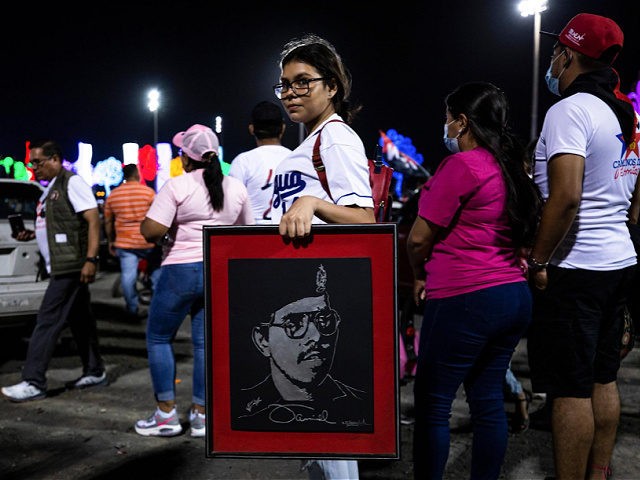U.N. High Commissioner for Human Rights Michele Bachelet presented an oral report to the U.N. Human Rights Council on Monday in which she accused Nicaragua’s ruling government of detaining political opponents in inhumane circumstances ahead of the country’s general election in November, Voice of America (VOA) reported Tuesday.
“Critics accuse Nicaraguan President Daniel Ortega of systematically ridding himself of viable opposition candidates to secure a fourth consecutive term as President of the country,” VOA noted on September 14. The American broadcaster relayed that Bachelet’s latest update to the U.N. Human Rights Council regarding Nicaragua documented “increasing restrictions” by the country’s socialist ruling party, the Sandinista National Liberation Front (FSLN), on citizens’ voting rights.
“Between 22 June and 6 September, my Office documented the arbitrary detention of 16 people, including political leaders, human rights defenders, business people, journalists, and peasant and student leaders, in addition to 20 others detained since 28 May,” Bachelet told the U.N. Human Rights Council in an oral report delivered September 13.
“This group includes six men and one woman who publicly stated that they wanted to run for the presidency, and a vice-presidential candidate has been charged while at liberty,” she continued.
Bachelet said the “vast majority” of detainees were “deprived of liberty for up to 90 days, incommunicado and some in solitary confinement, without the authorities officially confirming their whereabouts to their families.”
“[M]ost of the accusations against these persons were for conspiracy to undermine national integrity or crimes allegedly linked to the implementation of cooperation funds,” she revealed, citing information from Nicaragua’s Public Prosecutor’s Office.
Nicaragua’s next general election, in which citizens will elect the country’s next president, National Assembly, and members of parliament, is slated for November 7. The Central American nation passed a law late last year banning political candidates in Nicaragua’s 2021 general election “who lead or finance a coup… encourage foreign interference, ask for military intervention… propose or plan economic blockades, [or] applaud and champion the imposition of sanctions against Nicaragua or its citizens,” the Associated Press (AP) reported in December 2020.
At the time, the U.S. government had “imposed sanctions on about 27 people close to [Nicaraguan President Daniel] Ortega and his wife, Vice President Rosario Murillo, including Murillo herself and three of her children with Ortega,” the AP observed.
“The sanctions are aimed at bringing about free elections,” the news agency argued.
Nicaragua’s ruling government has consistently rejected criticism of its policies by the U.N. and other international agencies, claiming the attacks are based on “disinformation from North American and European countries” seeking to impose foreign political influence on the country, the U.S. government-funded VOA noted on Tuesday.

COMMENTS
Please let us know if you're having issues with commenting.